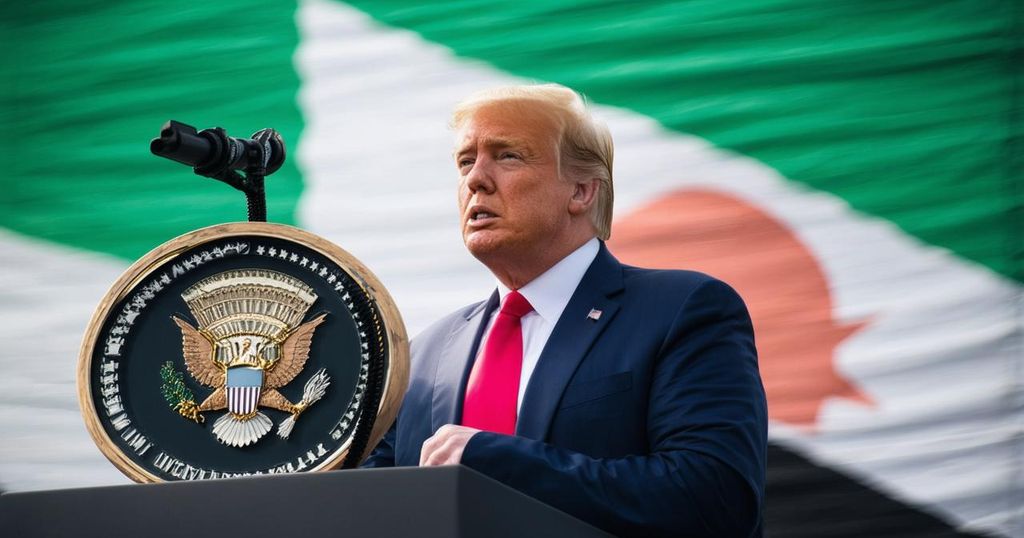Saudi Arabia and the UAE are likely to back Donald Trump in the upcoming elections, hoping to restore the favorable U.S. support they experienced during his first term. Concerned about Vice President Kamala Harris’s potential diplomatic approach, which may not align with their regional ambitions, the Gulf states see Trump’s return as an opportunity to strengthen military and economic ties. Their strategic calculations are also influenced by the ongoing conflict in Gaza and the broader implications for their relationships with Israel and Iran.
The Gulf states, particularly Saudi Arabia and the United Arab Emirates (UAE), are anticipated to favor the return of former President Donald Trump to the White House, viewing it as a pivotal opportunity to strengthen their regional objectives. Amidst escalating tensions surrounding Israel’s conflict with Hamas, both Gulf nations are wary of the current U.S. administration’s foreign policy approach, particularly that of Vice President Kamala Harris, who could adopt a more stringent stance towards their interests, including potential diplomatic engagement with Iran. Under Trump, Saudi Arabia and the UAE experienced substantial U.S. support which included arms agreements and a firm opposition to Iran, fostering growth in their regional influence. Harris’s policies, perceived as reverting to the diplomatic engagement style of former President Barack Obama, likely diverge from the transactional relationships that the Gulf states had cultivated under Trump. Consequently, they may gravitate towards policies that align with their ambitions, which include military enhancements, a closer alliance with Israel, and vital security partnerships with the U.S. Trump’s previous administration encouraged Saudi Crown Prince Mohammed bin Salman to pursue significant deals aimed at strengthening U.S.-Saudi ties, particularly in defense and nuclear cooperation, all while pressing for normalization with Israel contingent on advancements in Palestinian statehood. However, the current dynamics in Gaza could complicate these aspirations. As such, both Gulf states see a potential second Trump presidency as beneficial to their military and economic agendas despite possible rivalry escalations.
The geopolitical landscape in the Middle East has been significantly influenced by the interactions between the United States and the Gulf states, specifically Saudi Arabia and the UAE. The region has witnessed turbulence due to conflicts and hostilities, particularly the ongoing strife involving Israel and Hamas. As these nations navigate complex diplomatic waters, their alignment with U.S. presidential candidates relies heavily on perceived benefits to national security and regional stability. The contrasting foreign policy strategies of past U.S. administrations—one favoring a transactional approach under Trump and another leaning towards diplomatic engagement under a potential Harris presidency—create a pivotal scenario where Gulf states assess their strategic interests against the backdrop of U.S. elections.
In summary, Saudi Arabia and the UAE are likely to support Donald Trump’s return to the presidency due to his previous administration’s favorable policies which amplified their regional power and aligned with their strategic military and economic interests. Conversely, the anticipated stances of Vice President Kamala Harris might not meet their aspirations, particularly in navigating relationships with Iran and establishing U.S.-Saudi security commitments. The Gulf states’ preferences could lead to a recalibration of their internal dynamics and alliances based on which candidate they perceive as most conducive to their ambitions.
Original Source: foreignpolicy.com






